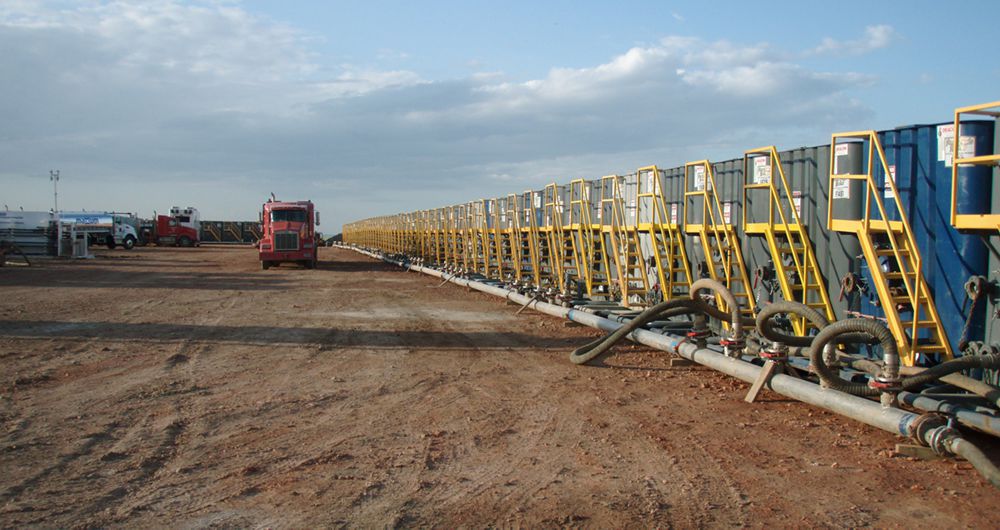by Allan Grogan
Thomas Carlyle once wrote that “the greatest of faults… is to be conscious of none”.
I am often reminded of this as I see the Scottish Government attempt to be all things to all people, while rarely stating the hand they wish to play.
Nowhere is this more evident than in their position on fracking as a viable energy source for Scotland.
Throughout the referendum, the Yes movement attracted people from a plethora of movements, parties, and political campaigns—nationalists, socialists, and environmentalists joined forces with campaigns to bin the Bedroom Tax, ban the bomb and many more, including the campaign to outlaw fracking of shale gas and coal bed methane.
Since last September, the SNP have been keen to be seen to maintain support for these progressive causes, but do so at the least amount of political expense.
This is why, rather than state unqualified opposition to fracking, they announced a moratorium in January and only recently extended it to offshore underground coal gasification (UCG).
The question that must be asked is: why are the Scottish Government refusing to rule out this type of energy creation outright?
For those unaware, hydraulic fracturing or “fracking” is the process of drilling and injecting fluid into the ground at high pressure in order to fracture shale rocks containing natural gas. This is done through pipelines upwards of 10,000 feet in depth.
While fracking could bring about a more secure energy supply, the environmental and humanitarian risks are unacceptable. The fracking fluid itself contains up to 600 chemicals, including known carcinogens and toxins such as lead, uranium, mercury, ethylene glycol, methanol, hydrochloric acid and formaldehyde.
It has been reported that methane concentrations are 17 times higher than normal in drinking water wells near fracking sites.
Despite the industry being in its relative infancy, there have been over 1,000 cases of water contamination next to gas drilling areas, including cases of sensory, respiratory and neurological damage due to contaminated water.
The very nature of this venture and the effects it can have should make anyone wary to sign off on this, let alone a government which has dependable oil and gas resources and 25 per cent of the EU’s renewable energy potential at its disposal.
UCG is, if anything, more dangerous, involving the partial combustion of underground coal before the syngas by-product is captured for use on the surface. This procedure is highly experimental, and less developed than methane and shale gas fracking.
While a great number of SNP members will no doubt purchase a Frack Off! badge at the SNP conference, they will also hear the spin on fracking from Ineos, who have paid the SNP £4,000 for a stall at their event.
While this does not in itself signal support, it is a curious position to allow a company which is continuing to extend its shale gas licenses access to your conference.
Ineos Chief Executive Gary Haywood has proclaimed that shale gas is a “once in a lifetime opportunity that the UK can’t afford to miss”.
You have to ask yourself whether allowing his company at this conference is a signal that the SNP are willing to consider fracking—or just that their scruples go out the window where money is involved.
Make no mistake: a moratorium is not a ban, but merely a delay, and one which many are starting to believe is solely designed to allow the SNP to continue being all things to all people for the next election cycle.
While the Scottish Socialist Party passed opposition to fracking at our 2014 conference and have called for the gas industry to be returned to public hands, the SNP continue to try to keep everyone on-side, refusing to make the hard decisions for which they were elected.
This may have to change; the shine of the SNP seems to be coming off for many who are starting to see the long game. Campaigns have begun in earnest to pressure the Scottish Government into announcing the complete rejection of fracking and UCG.
These campaigns are gaining momentum, with over 2,000 people protesting on the Forth Road Bridge, joined in solidarity by campaigners in the rest of the UK and as far afield as Australia.
For many, the latest moratorium announcement is a sign that this government cannot be trusted to act decisively on fracking and may, in some quarters, even support the policy.
More worrying is the belief of a great number of SNP members that their party can do no wrong. Their full trust will lead them headfirst into a harsh reality if they do not realise that, eventually, the SNP will need to make a decision on fracking.
If current form is to be believed, this pro-business party may end up granting access to Ineos to begin fracking in Scotland. The campaign against this is vital, and public protest must be loud enough for Fergus Ewing to receive the message loud and clear.
The Scottish Socialist Party is proud to play a role in the campaign against fracking.
We have laid out our position clearly and concisely: the environmental dangers of fracking are not worth the potential economic gains. This is especially the case when there are so many other viable alternative energy sources in this country.
This Scottish Government needs to unequivocally announce that fracking will be banned in Scotland and they need to do so before the Scottish Parliament elections. If they don’t, their members may soon regret placing such blind faith in the SNP.
This article was previously published in issue 466 of the Scottish Socialist Voice. You can obtain a copy from your local branch, or get a regular subscription via our shop.
Main image: Joshua Doubek – CC BY-SA 3.0

